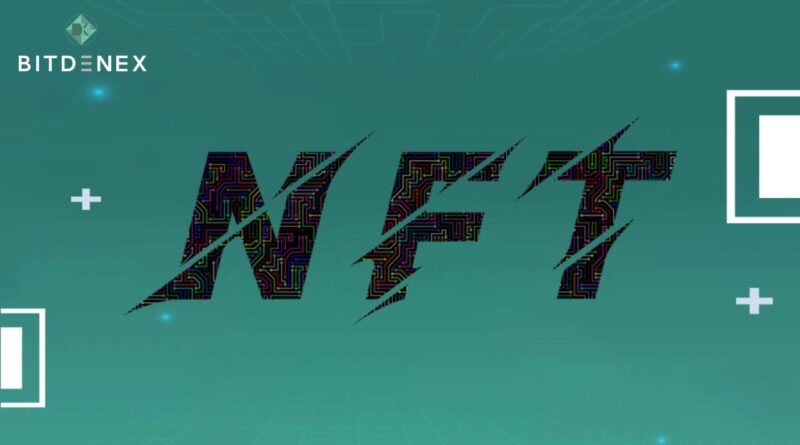Why NFTs Are The Keys To Accessing The Metaverse
NFTs are rapidly proliferating in the digital world, signaling the Metaverse, a new era in digital assets. The introduction of metaverses on the world stage is best exemplified by Facebook’s launch of Meta, which signals a move towards a metaverse era in which NFT-based augmented experiences will serve as pillars for next-generation social networks.
NFTs and metaverses are already inextricably linked, particularly in blockchain gaming and other interoperable games in which they play the function of value carriers for broad digital social media.
What Is The Metaverse?
A metaverse is a digital ecosystem that runs on the blockchain. VR and AR technologies serve as visual component providers, while the decentralized medium allows for endless social engagement and business prospects. These environments are scalable, interoperable, and adaptable, combining innovative technologies and forms of interaction among users at both the individual and organizational levels.
Metaverses are digital 3D universes that combine a variety of processes and aspects, including communications, finances, game worlds, personal profiles, NFTs, and more. The metaverse’s promise is attributed to the freedom it provides; anyone in the metaverse can make, buy, and view NFTs to amass virtual land, join social communities, and establish virtual identities, games, and other activities.
How Will NFTs Impact The Metaverse?
NFTs have the potential to disrupt the traditional social network paradigm of user engagement, socialization, and transactions in the metaverse. Discover how NFTs can disrupt the digital world.
An Open and Fair Economy.
Currently, people and businesses can transfer real-world assets and services to a virtual decentralized environment called as the metaverse. One method for attracting more real-world assets to the metaverse is to use new gaming models with interoperable blockchain games.
The play-to-earn gaming paradigm is one strategy that engages and empowers blockchain game participants. By relying on NFTs, gamers can participate in financial in-game economies in the metaverse and receive incentives for the value they offer, thus earning while playing.
Play-to-earn games are also fair in the metaverse since participants retain complete ownership of their assets rather than being owned by a single game entity, as is the case with most traditional games.
If you’re curious about how to participate in these financial in-game economies, Such in-game NFTs are in high demand, as evidenced by the response to IGO debuts, where all NFTs were sold out immediately after the drop. Axie Infinite (AXS), My Neighbour Alice (Alice), and many other play-to-earn games have proven to be successful.
This promotes an open and fair economy by allowing players who do not have the initial capital to play to get an advantage through guilds. Guilds decrease the entry barrier to play-to-earn games for all players, making it more equitable for everyone to have a chance to participate in the Metaverse economy. In brief, guilds help to begin virtual economies in the metaverse by making NFT resources more available to all. Yield Guild Games (YGG) is one such example, in which they create a global community of metaverse participants that contribute to virtual worlds in exchange for in-world incentives, generating cash through the rental or sale of YGG-owned assets.
Users can exchange their NFT assets, such as in-game assets and digital real estate, on NFT platforms like Bitdenex NFT, so in-world assets can also have real-world worth. The economic value of in-game NFTs is defined by their placement in various metaverse modules. This enables users to create the material they desire, such as popular assets with a huge audience, original digital artwork, or specialised NFTs that grant specific talents and appearances in games. Metaverses provide an open and fair economy by leveraging the blockchain’s inherent properties of immutability and transparency.
An Extension of Identity, Community And Social Experiences
NFTs will also play an important role in metaverse identities, communities, and social interactions. Holding specific NFT assets might indicate a user’s support for a project or transmit viewpoints on the virtual and real worlds. This enables like-minded individuals who own such NFTs to form communities that exchange experiences and create material together. One example of such NFTs is the popular NFT avatar.
NFT avatars represent a player’s actual or imagined self. NFT avatars can be used as access tokens to enter and navigate the metaverse. In this situation, NFT avatars act as an extension of our real-life identities, giving us complete control and flexibility to curate and construct our virtual identities in the metaverse.
The Future of The Metaverse
While still in its early phases of development, metaverses provide several potential social and financial opportunities through the usage of NFTs, as well as new ways for people to play, engage, gather, earn, and transact.
By mixing VR, video games, social media, and crypto components, metaverses and NFT blockchain gaming will become a vital aspect of Web 3.0, a period in which real-world enterprises expand into the digital sphere and users discover the adaptability of such environments. We feel that NFT ownership is critical and will unlock a plethora of opportunities in the coming metaverses. The Bitdenex Marketplace allows interested users to find, accumulate, and exchange unique NFT assets while also traversing the metaverse.

